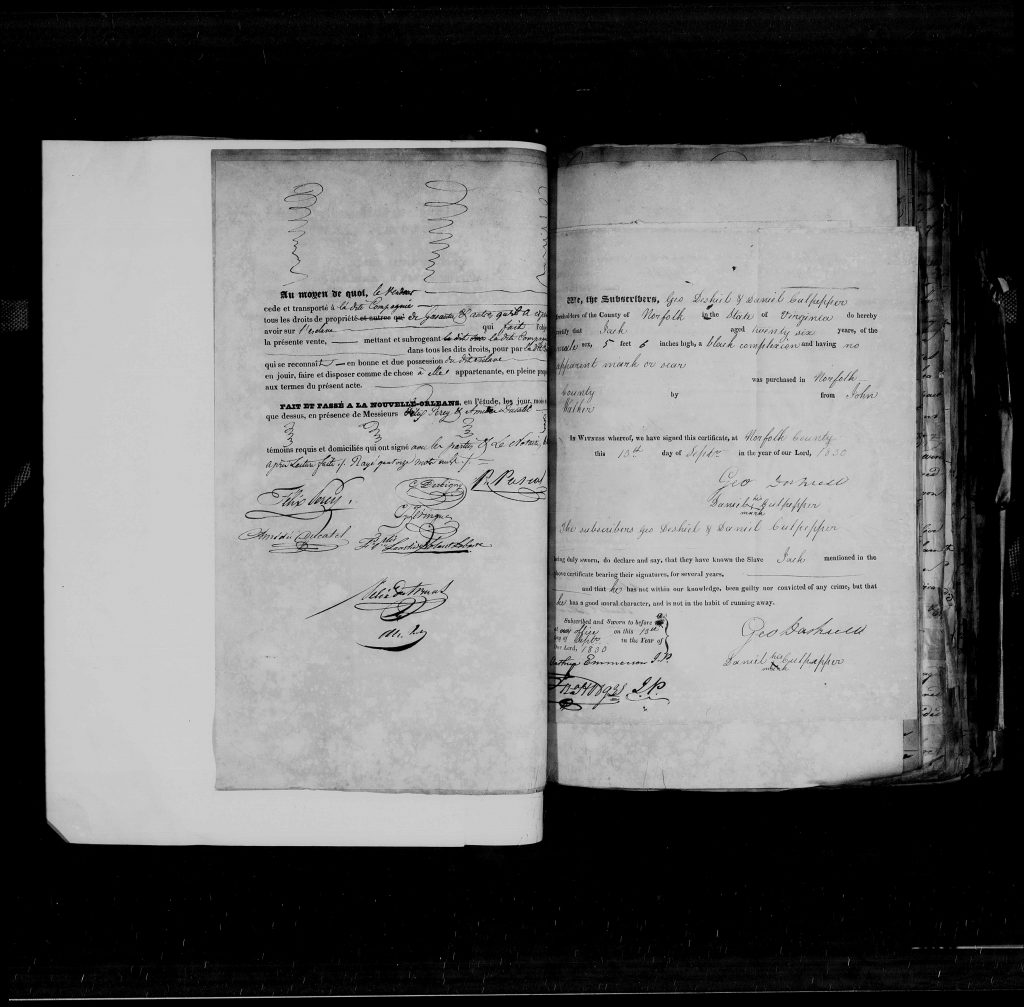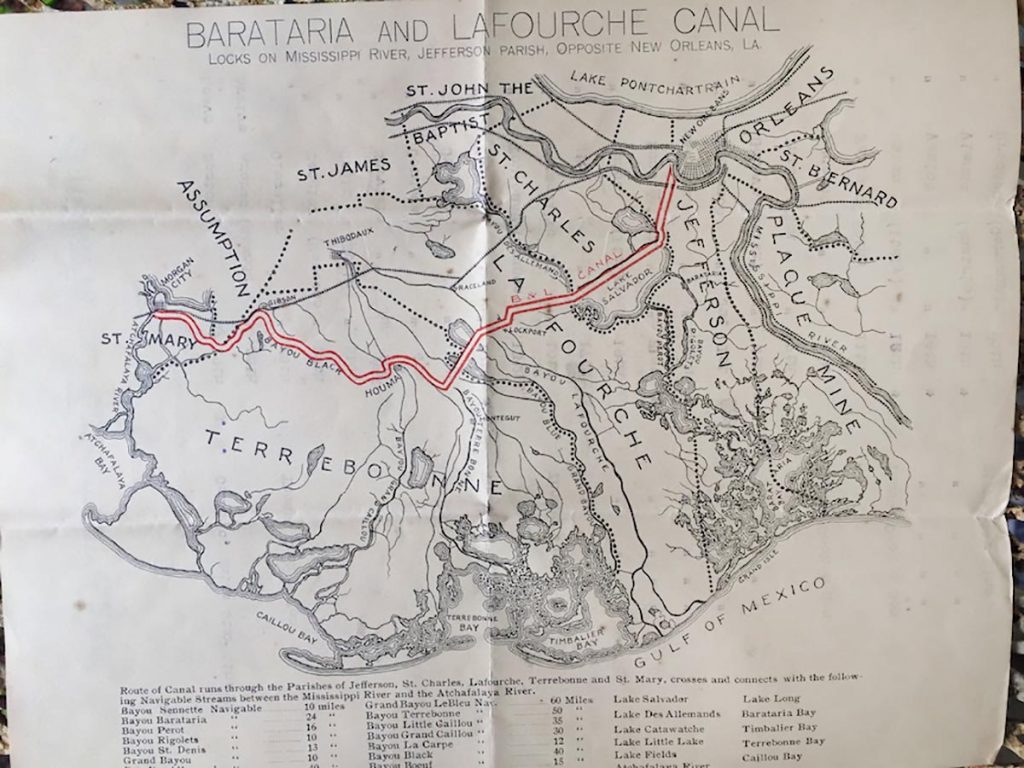In 1830, Jack, a 26 year old carpenter, boarded a ship bound for New Orleans. Jack was enslaved and had been sold by John Walker of Norfolk, Virginia to slave trader Paul Pascal. In Norfolk, Jack was one of two enslaved people Walker owned. Walker lived on Cumberland Street in downtown Norfolk, and Jack likely either aided him in his business or was hired out.

Paul Pascal was a business partner of Bernard Raux, a Norfolk-based slave trader who was of French ancestry and had business partners and contacts in New Orleans. Pascal spent most of his time in New Orleans, receiving shipments of enslaved people sent by Raux and their third partner, Nathaniel Currier.
Jack likely arrived in New Orleans in October and spent at least a month in one of the city’s slave jails before being sold to the owners of the Canal Company of Barataria & Lafourche. The company was one of several businesses formed in the 1820s to construct canals to connect Attakapas Parish to the Mississippi River to transport sugar from the plantations to the port. Shortly after the company was founded in 1829, the owners began buying dozens of enslaved people to work the canals, many of them skilled men like Jack.
Jack was likely taken to Jefferson Parish, just outside New Orleans, and put to work constructing the canal or the buildings needed to house enslaved workers, tools and the equipment to keep the canal boats running. His life in Louisiana was likely much different than it had been in Norfolk. Conditions in the canal camps were hot, the work was hard and the company was poorly managed and went bankrupt in 1859.

Bibliography:
Bernard Raux slave trade papers, 1828-1836. Houghton Library, Harvard University, Cambridge, Mass.
Personal Property tax lists, 1827-1850, Norfolk, Virginia. Library of Virginia, Richmond. reel 3.
Sale of Jack by Paul Pascal to the Canal Company of Barataria & Lefourche, November 16, 1830. Records of the Notary Public of Orleans Parish, Louisiana, Felix DeArmas, vol. 30, act 884.